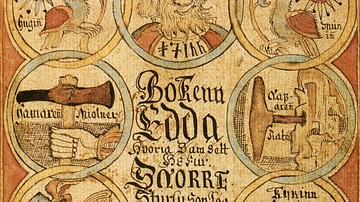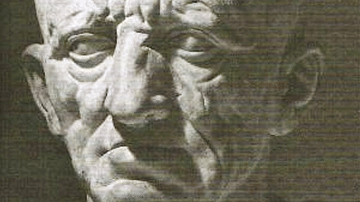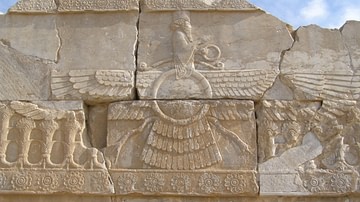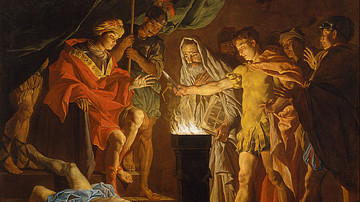Search Definitions
Browse Content (p. 208)

Definition
Edda
Edda is a term used to describe two Icelandic manuscripts that were copied down and compiled in the 13th century CE. Together they are the main sources of Norse mythology and skaldic poetry that relate the religion, cosmogony, and history...

Definition
Censor - The All-Powerful Magistrate of Ancient Rome
A censor was one of two senior magistrates in the city of ancient Rome who supervised public morals, maintained the list of citizens and their tax obligations known as the census, and gave out lucrative public contracts and tax collecting...

Definition
Odyssey - Homer's Epic Poem of Redemption
Homer's Odyssey is an epic poem written in the 8th century BCE which describes the long voyage home of the Greek hero Odysseus. The mythical king sails back to Ithaca with his men after the Trojan War but is beset by all kinds of delays and...

Definition
Ahura Mazda
Ahura Mazda (also known as Ahuramazda, Harzoo, Hormazd, Hourmazd, Hurmuz, Ohrmazd, 'Lord' or 'Spirit') is the highest spirit worshipped in Zoroastrianism, the old Mede and ancient Persian mythology which spread across Asia predating Christianity...

Definition
Iliad
Homer's Iliad describes the final year of the Trojan War, a legendary conflict between an alliance of Greek cities and the city of Troy in Anatolia. It was probably written in the 8th century BCE after a long oral tradition. The Greeks themselves...

Definition
God's Wife of Amun
The position of God's Wife of Amun was one of the most politically powerful and spiritually significant in later Egyptian history. Elevated from a figurehead in the New Kingdom (c.1570-1069 BCE), the God's Wife of Amun would hold power equal...

Definition
Arretium
Arretium (modern Arezzo) was an important Etruscan town located in the extreme north-east of Etruria in central Italy. Flourishing as a trade and manufacturing centre, Arretium managed to overcome its rivalry with Rome and continue as a prosperous...

Definition
Volsinii
Volsinii (modern Orvieto), located in central Italy, was an important Etruscan town from the 8th century BCE when it was known by the name of Velzna. Representatives of the Etruscan League met annually at the site in the most important Etruscan...

Definition
Etruscan Pottery
Etruscan pottery, produced over five centuries, was nothing if not varied. Indigenous wares such as the glossy black bucchero were made alongside red- and black-figure pottery imitating, yet modifying those produced in the Greek world. Geometric...

Definition
Lars Porsenna
Lars Porsenna was the semi-legendary Etruscan king of Chiusi who famously attacked and probably occupied Rome c. 508 BCE when the city had just exiled its last king and was moving towards becoming a republic. His extravagant tomb is described...